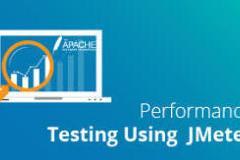Course Description: The Full Stack QA Engineer Training course is designed to equip participants with the skills and knowledge needed to effectively test and assure the quality of software applications across both front-end and back-end components. Through a combination of theory, hands-on exercises, and practical projects, participants will gain expertise in testing methodologies, automation tools, and best practices required to ensure the smooth functioning of modern software systems.
Course Objectives: By the end of this course, participants should be able to:
- Understand the role and responsibilities of a Full Stack QA Engineer in the software development lifecycle.
- Implement various testing techniques to ensure the quality and reliability of software applications.
- Develop test plans, strategies, and scenarios for both front-end and back-end testing.
- Apply manual testing practices to verify software functionality, usability, and performance.
- Implement automated testing solutions to streamline repetitive testing tasks.
- Test front-end components, user interfaces, and user experiences.
- Validate back-end services, APIs, and databases for functionality and integrity.
- Utilize testing frameworks and tools for both unit and integration testing.
- Perform cross-browser and cross-device testing to ensure compatibility.
- Analyze and report defects, tracking their resolution through the software development lifecycle.
- Collaborate effectively with development teams to address quality concerns.
- Gain insights into continuous integration and continuous delivery (CI/CD) pipelines.
- Explore security testing and best practices for securing software applications.
- Develop a strong understanding of the testing life cycle and testing documentation.
Course Topics:
- Introduction to Full Stack QA Engineering
- Testing Fundamentals and Methodologies
- Manual Testing Techniques
- Test Planning and Strategy Development
- Front-End Testing:
- User Interface Testing
- Usability Testing
- Cross-Browser and Cross-Device Testing
- Back-End Testing:
- API Testing
- Database Testing
- Test Automation Frameworks and Tools
- Selenium, Appium, Postman, etc.
- Unit Testing and Integration Testing
- Performance and Load Testing
- Test Automation for Web Applications
- Continuous Integration and Continuous Delivery (CI/CD)
- Security Testing Basics
- Defect Tracking and Management
- Collaboration with Development Teams
- Industry Best Practices and Emerging Trends
- Capstone Project: Full Stack Testing of a Sample Application
Assessment: Assessment methods may include practical exercises, coding assignments for test automation, group projects, quizzes, and a final project where participants demonstrate their ability to test a full stack application.









